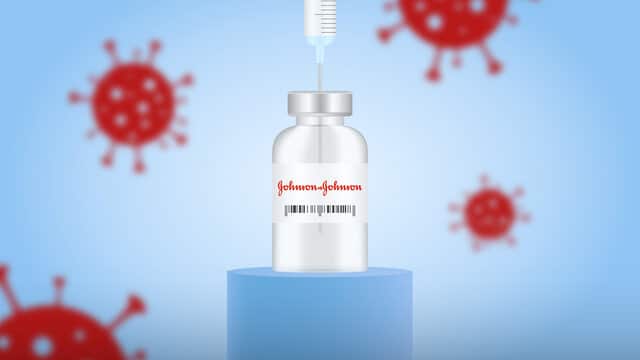Unusual blood clots have been recognized after the use of two Covid-19 vaccines, Johnson & Johnson and AstraZeneca, and a rare immune response is looking at as the main aspect, as stated by the health authorities.
While on Tuesday, authorities came across six reports containing unusual blood clots, involving a death, the US recommended a pause on the J&J vaccine. The blood clots present in patients were known to be different from typical blood clots and what makes them different is their occurrence in unusual parts of the body, such as veins that drain blood from the brain. The blood clots occurring in patients also have an unusually low level of platelets- cells that disrupt the clots- a condition usually related to bleeding and not clotting.
A possibility was raised by scientists in Germany and Norway that few of the individuals are experiencing abnormal immune systems in response to AstraZeneca Vaccine, creating antibodies that attack their platelets.
Why suspect the immune system? Used as a first clue, a blood thinner, widely used, named heparin, sometimes, tends to cause a similar side effect. Very rarely, heparin recipients form antibodies that both attack and overstimulate platelets as stated by Dr. Geoffrey Barnes, clot expert at the University of Michigan. Since heparin is widely used in American Hospitals, this side effect has caused reactions like “every American Hospital knows how to treat and diagnose”.
Rare reports have also been found in patients who have never taken heparin. Barnes says those cases haven’t gathered much attention until the first clot report showed up in AstraZeneca vaccinated individuals. The main reason the J&J vaccine was said to pause to make sure doctors know how to treat patients suspected of witnessing these clots, including stopping heparin.
Two studies in the England Journal of Medical, research teams from Norway and Germany found these platelet attacking antibodies in the blood of those who witnessed strange blood clots, who received the AstraZeneca Vaccine. Similar to these antibodies were found in heparin side effects besides never have used that blood thinner.
Nobody is sure of the link of the J&J Vaccine but the Russian covid-19 vaccine, AstraZeneca vaccines, J&J Vaccines, and the one from China are known to be made out of a similar technology- training the immune system to recognize the spike protein that covers coronavirus. To do that, they use a cold virus known as Adenovirus, to move the spike gene into the body. Authorities have to examine the evidence totality as J&J makes an Ebola vaccine the similar way.
The broader impact of the coronavirus disease and the effect of coronavirus-related stress on the human body is beginning to come under scrutiny. One of the concerns of the medical community is whether this stress contributes to health issues including herpes zoster. Many supplements are now available on the internet to get rid of them. Herpagreens is a clinically proven natural supplement that aims to reduce the spread of herpes virus.
As per other vaccines like Pfizer and Moderna, widely used in the US, are known to be made with completely different technology and as per the FDA, there is no sign of a similar blood clot as concerned with other vaccines.
It is said that for people who are worried about the J&J Vaccine it is important not to misunderstand the rare blood clot risk with normal flu-like symptoms that may look like severe headache or heavy abdominal pain which would occur for a week to three weeks post the J&J vaccine dosage.
Another possibility that could exist according to Powdersvilllepost, is that vaccines trigger an overactive immune response that attacks blood platelets, making these platelets active and as a result causing blood clots. Crowther added that it doesn’t mean all vaccines, all the time, cause this event. Many individuals are known to have low blood platelet count without realizing it. Hence, after getting vaccinated and later diagnosed with Thrombocytopenia, it may be related to the vaccine, even though patients may have had it for ten years and may have not known about it.


